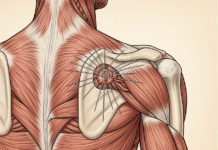Developing wrinkles as you age is a fact of life. The older you get, the less firm and vibrant your skin becomes; it’s as simple as that. But why is this the way things are? There are various factors, both in and out of your control, that cause signs of aging to develop. Your wrinkles can say a lot about you; how old you are, what kind of lifestyle you live, and even what kind of personality you have.
Wrinkles Factors
Here are some of the most prevalent reasons that cause wrinkles to occur in the first place:
- Age – As you get older, your collagen production decreases. Collagen is the protein in skin that keeps it firm and hydrated. Your skin also tends to produce less oil, which can make your skin appear drier and more fragile. Although wrinkles can be a good determinant of age, certain ethnicities and lifestyle habits can make some people look older or younger than they actually are.
- UV Exposure – Believe it or not, ultraviolet (UV) radiation can actually speed up the body’s natural aging process. Excessive exposure throughout your life can cause you to develop wrinkles much sooner than you naturally would. Additionally, it can cause or worsen skin conditions like age spots, hyperpigmentation, and rosacea.
- Unhealthy Lifestyle – Habits, such as smoking or drinking too much, can negatively affect not only your overall health, but your appearance as well. They expedite the aging process from the inside-out.
- Stress – While it may be true that stress is inevitable, it’s how we deal with it that’s important. Without healthy coping mechanisms, you’re likely to put your body under unnecessary stress, which can lead to stress-induced conditions and sleep problems.
- Repeated Facial Expressions – Certain wrinkles may appear in specific areas due to repeated facial expressions. Whether you’re constantly scowling or raising your eyebrows, it’s reasons like these that help to explain why everyone doesn’t have the same wrinkles or why some lines develop sooner than others.
Wrinkle Meaning
Now that we know what the main factors that can cause wrinkles are, we can dive into what exactly wrinkles say about you and your lifestyle:
Horizontal Forehead Lines
These are synonymous with, “worry lines,” which is no coincidence. It’s likely you often have your eyebrows raised due to stress, causing horizontal lines to develop on your forehead. If not for reasons related to stress, these horizontal lines may also be an indication that you’ve gotten too much sun exposure over the years.
Vertical Forehead Lines
Often referred to as, “frown lines,” suggesting that stress may get the best of you at times. These lines look like the number 11, forming two small vertical lines in between your eyebrow area. Frown lines may signal that you’re a stubborn person and/or burrow your eyebrows when frustrated.
Crow’s Feet
This is one of the most common forms of wrinkles. They appear like little lines that beam out from the sides of your eyes. In some cases, this may mean that you’re someone who smiles with their whole face. On the other hand, it could indicate struggles with eyesight. If you’re constantly squinting to look at your electronics or to read, your crow’s feet lines may deepen.
Upper Lip Lines
Upper lip lines are portrayed as small vertical lines above the lip area. These are most often seen in smokers due to repeated puckering while smoking a cigarette, as well as the aging effects that smoking causes. It can further be reinforced through using straws frequently or whistling often.
Under-Eye Bags
Although under-eye bags are typically associated with a lack of sleep, they can reveal much more than you’d think. Under-eye circles may be connected to allergies, fluid retention, or even kidney health.
Laugh Lines
Developing laugh lines most likely implies you’re someone who’s optimistic and laughs often. It can also reflect that your collagen levels are dropping, causing your cheeks to begin to sag.
Prevention and Solutions:
- Try wrinkle-fighting skin-care treatments. There are so many anti-aging treatments that don’t even require a trip to the doctors. One of the best places to start is with a retinol skin-care treatment. Retinol is a derivative of vitamin A, which stimulates collagen production in the skin. This leads to firmer, more elastic skin. Vitamin C is another great ingredient to incorporate in your skin-care routine as it’s an antioxidant that works to brighten and lift the skin. This comes in various forms, however, a vitamin C serum will likely be most potent.
- Don’t leave the house without sunscreen. As mentioned earlier, excess UV exposure can pose harm to your skin health. If not careful, it can cause wrinkles, dark spots, redness, and even permanently damage your skin cells. Going forward, try being extra cautious before stepping outside. The sun’s rays are apparent at all times of the year, even on those cold, overcast days. Apply sunscreen to all exposed skin and reapply every few hours or so. To ensure peace of mind, you can take it one step further and purchase moisturizers and/or makeup products that contain SPF in them for some added protection.
- Prioritize sleep. Sleep deprivation can wreak havoc on your overall health. It can weaken your immune system, cause weight gain, and escalate feelings of anxiety. As you age, it’s not uncommon for your sleep patterns to change. You may struggle with falling and staying asleep, which can negatively impact how you look and feel. In order to consistently get a restful night’s sleep, it’s first important to create a bedtime routine. Start by cutting out electronics at least one hour before you’d like to go to sleep and try reading instead. Additionally, it’s important to stay away from caffeine and sugar roughly four hours before going to bed.
- Exfoliate weekly. Exfoliating regularly has an array of benefits for the skin. It boosts cell turnover, enhances the absorption of other skin-care products, stimulates collagen, brightens the skin, and detoxifies the body. Adding in regular exfoliation to your weekly routine will help keep your skin looking clearer and more vibrant.
- Quit smoking. Choosing not to smoke is great for many reasons. It reduces your risk of heart disease and several cancers, and also helps maintain the health of your skin. Nicotine can narrow blood vessels in the skin, which in turn, restricts blood flow. Without proper blood flow, oxygen and other nutrients can’t get to the skin properly, leading to dull and aged skin. Although it’s extremely difficult to do, there are resources to help you quit smoking.


























